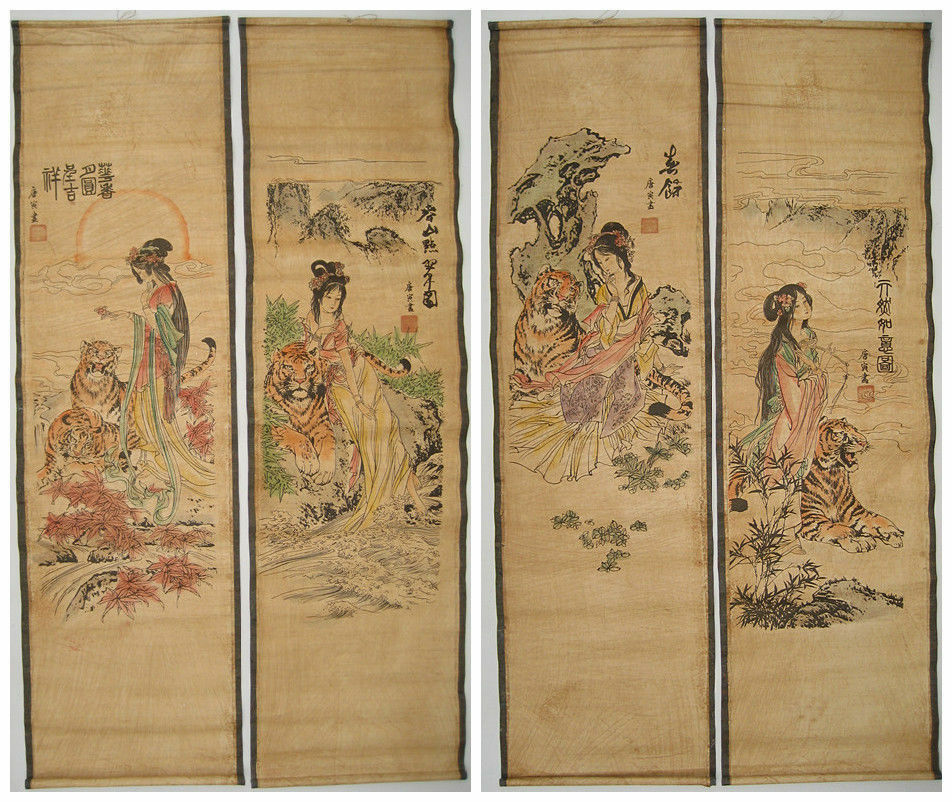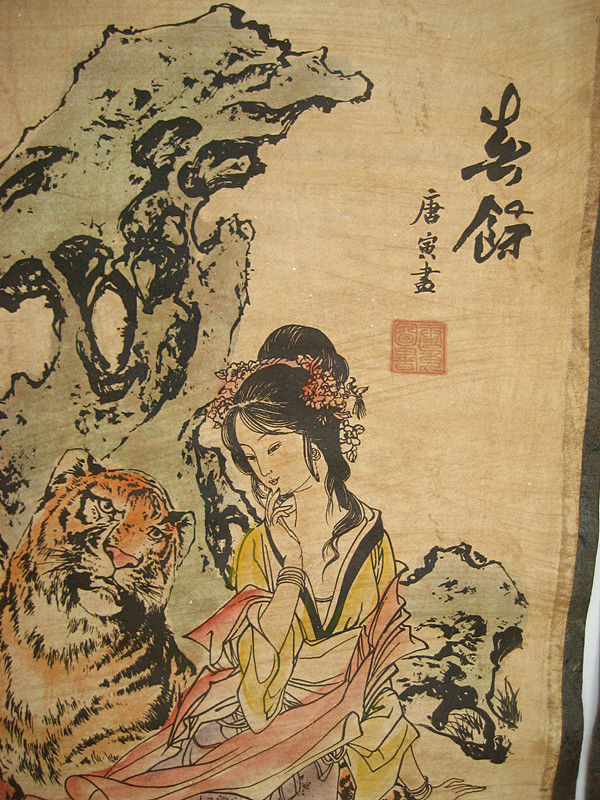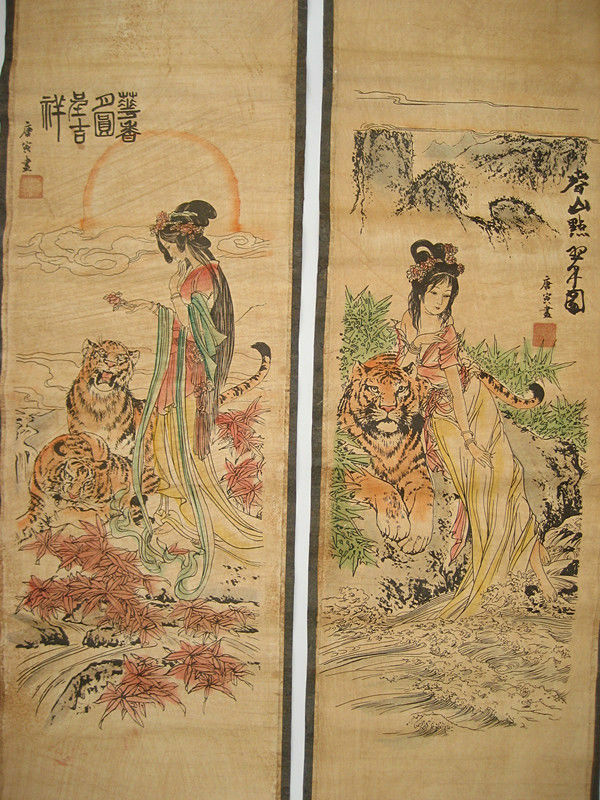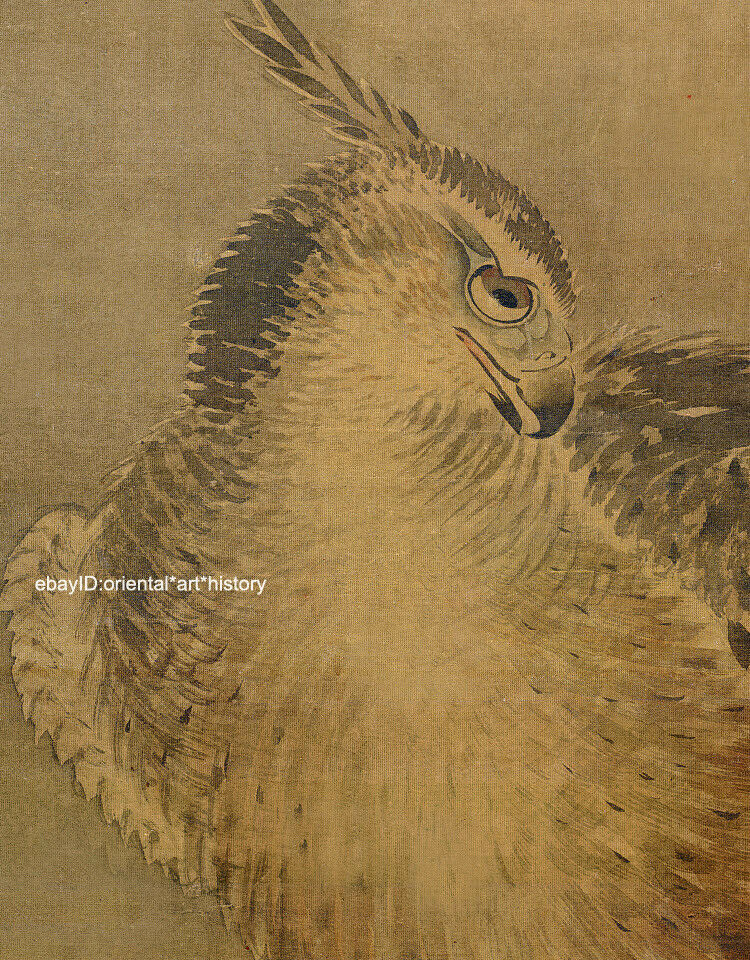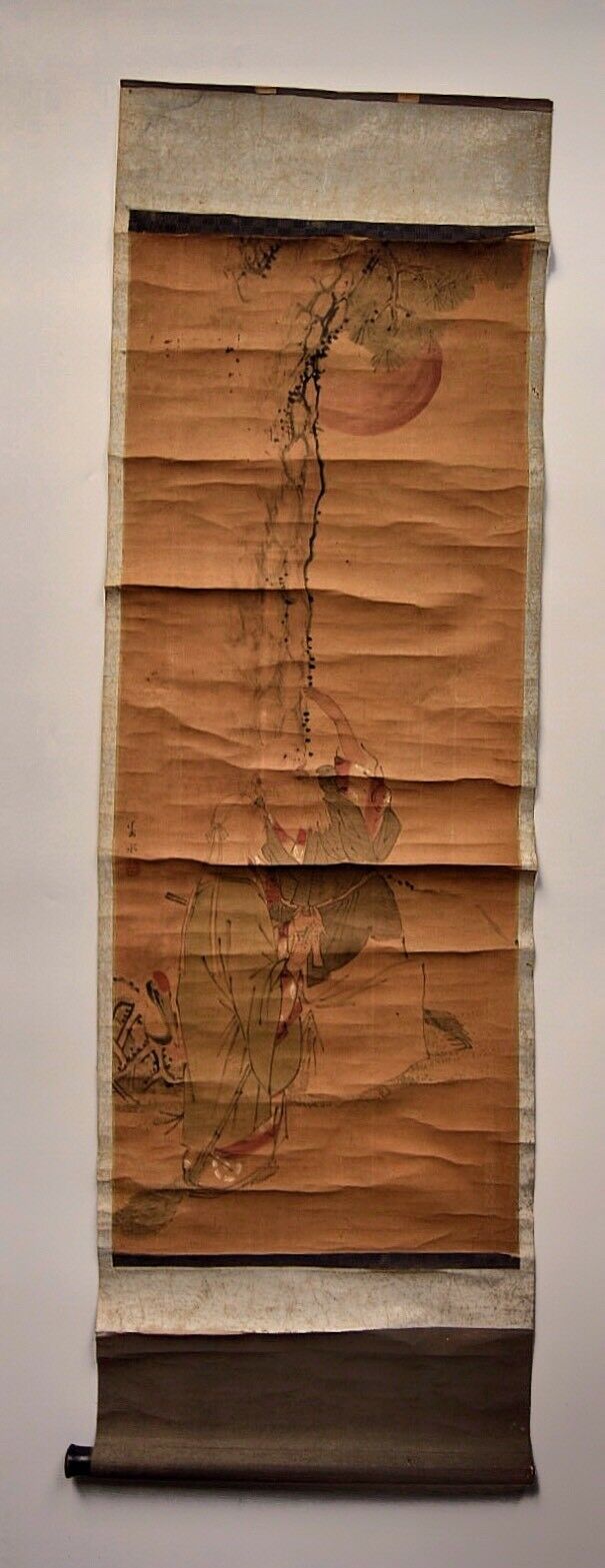-40%
Chinese painting scroll beauty and beast Tang Bohu 4 scrolls 美女与野兽
$ 20.58
- Description
- Size Guide
Description
Scroll size:127cm
×35
cm
Country of Origin: China
Conditions: a complete, no defects.
Tang Yin (1470-1523)
Tang Yin was one of the orthodox masters of artist in Ming Dynasty. His famous alias Tang Bohu, was a student of Shen Zhou. He was accomplished in poetry, prose and calligraphy, and excelled especially in painting. He had an unrestrained personality, experienced many hardships in life and was poor and frustrated in his later years. Tang followed the Southern Song Dynasty painting style but was not fettered by old conventions. His paintings on folklore themes reveal the rich flavor of life, and his brushstrokes are fluid, vigorous and elegant. He inherited old traditions but created his own style. He was honored as the "Four Great Painter in Ming Dynasty with Shen Zhou, Wen Zhengming and Qiu Ying.
Tang Yin (This is a Chinese name; the family name is Tang.
Chinese: 唐寅; pinyin: Táng Yín; Cantonese Yale: Tong Yan; 1470–1524), courtesy name Tang Bohu (唐伯虎), was a Chinese scholar, painter, calligrapher, and poet of the Ming Dynasty period whose life story has become a part of popular lore. Even though he was born during Ming Dynasty, many of his paintings (especially paintings of people) were illustrated with elements from Pre-Tang to Song Dynasty (12th century).
Tang Yin is one of the most notable painters in Chinese art history. He is one of the "Four Masters of Ming Dynasty” (Ming Si Jia), which also includes Shen Zhou (1427–1509), Wen Zhengming (1470–1559) and Qiu Ying (ca. 1495-1552). Tang was also a talented poet. Together with his contemporaries Wen Zhengming (1470–1559), Zhu Yunming (1460–1526), and Xu Zhenqing, he was one of the “Four Literary Masters of the Wuzhong Region.”
Tang's eccentric lifestyle has prompted storytellers to immortalize him as a trickster character in Chinese folklore. In one such story, he falls in love with a slave girl whom he glimpses on the boat of a high official passing through Suzhou. He has himself sold as a slave to the official's household so that he may approach her. With the help of his friends, he eventually succeeds in bringing her home.This story prompted the playwright Three Words by Feng Menglong and the opera The Three Smiles.
